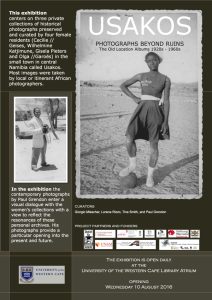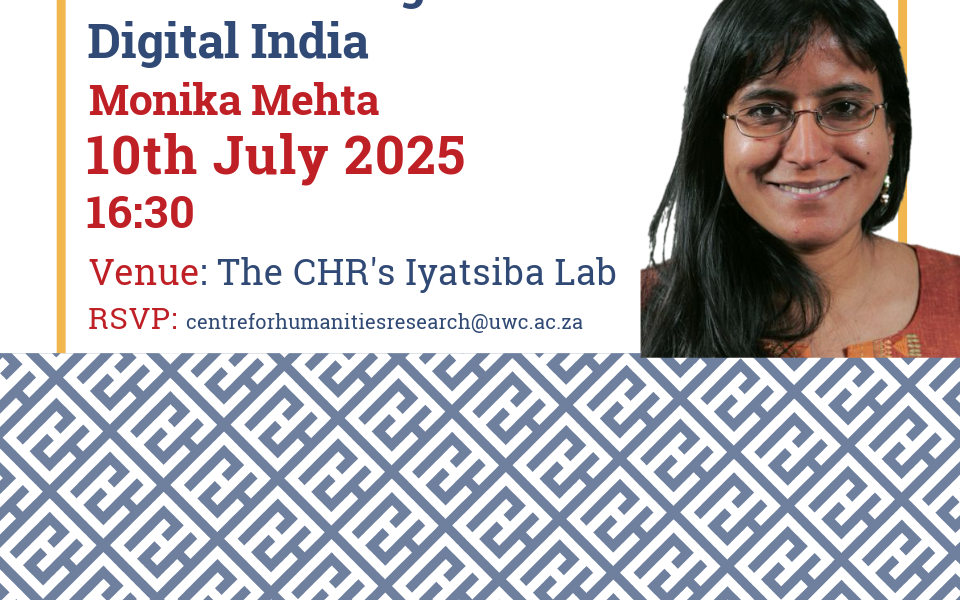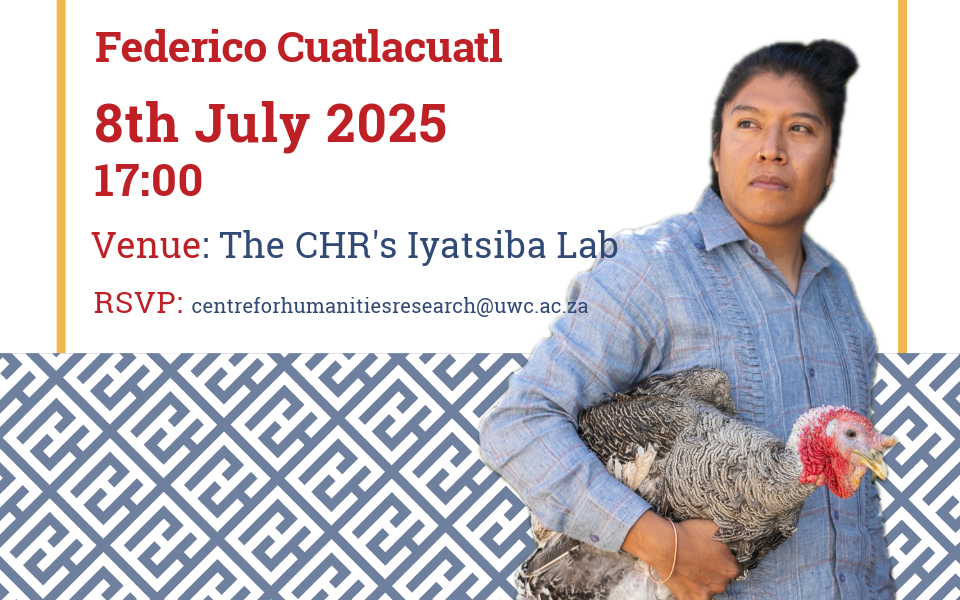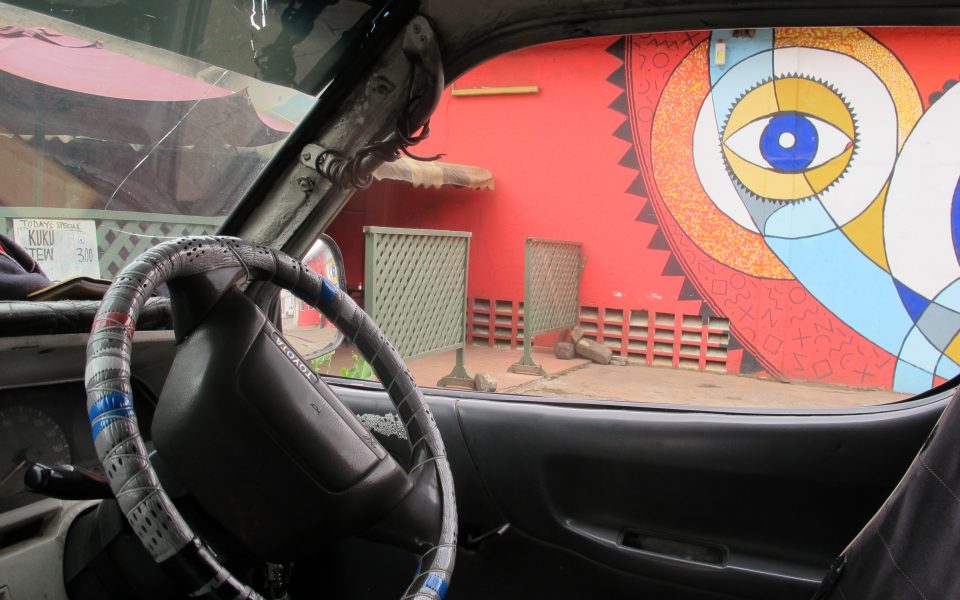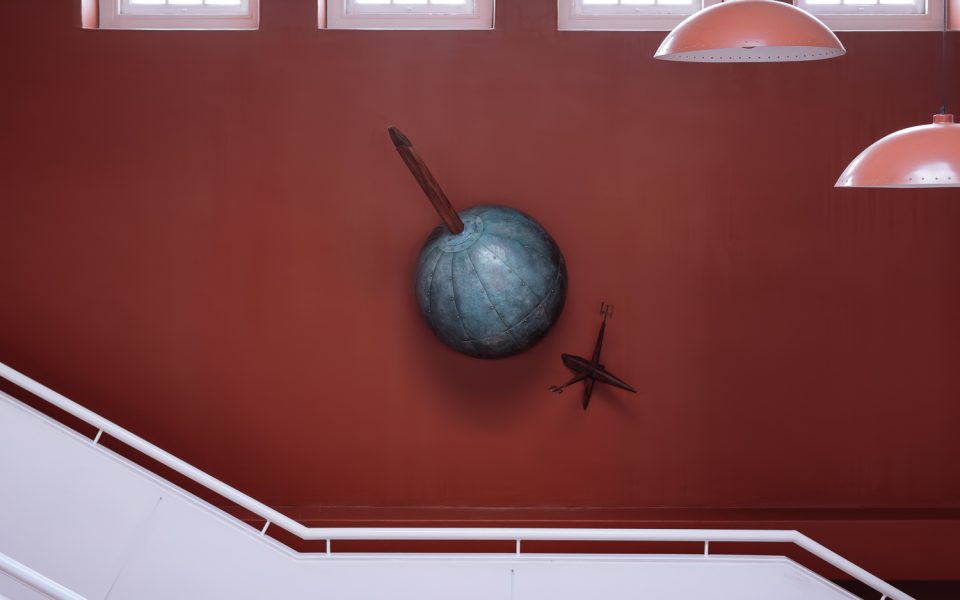Exhibition Launch: USAKOS: Photographs beyond Ruins

The Centre for Humanities Research and the Library invite you to the launch of an exhibition that vividly evokes questions related to Sociology, Economics, History, Geography, Politics, Curation and Library Science amongst others.
Usakos, a railway town in Namibia, developed as one of the main hubs of first the German colonial and later the South African railway system, and its urban morphology was marked, from its early beginnings, by the policies of segregation and apartheid urban planning.
The exhibition is designed around three private photographic collections kept by four women, Cecilie Geises, Wilhelmine Katjimune, Gisela Pieters and Olga Garoes, in a central Namibian town called Usakos. Usakos is marked, today, by economic stagnation and many social challenges. The town’s history is linked to the development of the South African railway system in Namibia, which brought remarkable prosperity to Usakos in the 1940s and 1950s, but caused a major socio-economic decline in the early 1960s. At this stage, the inhabitants of Usakos were subjected to forced removals based on racial segregation and apartheid urban planning and relocated on the town’s outskirts.
Most of the photographs were taken by local residents or itinerant African photographers and document the old location’s social history. Contemporary photographs by Paul Grendon (Artist in Residence, CHR) also form part of the exhibition.
Please join us on
Time: 13:00 – 14:00
Date: Wednesday 10 August
Venue: Library Atrium
Speakers: Tina Smith (District Six Museum) and Omar Badsha (South African History Online)


